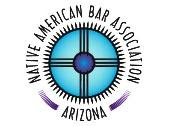Complexities of Indian legal research detailed in seminar By Judy Nichols
A recent seminar, “Indian Legal Research: Unlocking the Secrets to Researching Indian Law,” drew nearly 60 people to the Sandra Day O’Connor College of Law to explore the rich and complex world of Indian law.
Those attending represented nine different Indian nations, members of tribal courts, the Bureau of Land Management, the Bureau of Indian Affairs, the Arizona Governor’s Office, and many law firms.
The conference was conceived by Alison Ewing, library liaison for the Indian Legal Program at the College of Law, along with Beth DiFelice, assistant director and head of public services for the Ross-Blakley Law Library, and Tamara Herrera, clinical professor of law. It was encouraged by Rebecca Tsosie, director of the Indian Legal Program and Victoria Trotta, associate dean for Information Technology and the Ross-Blakley Law Library and supported by the staff of the Indian Legal Program.
Tsosie said the seminar was the first of its kind she had seen anywhere. And it is particularly timely as questions about Indian law may soon be on the state bar exam.
“Indian law is notoriously difficult to research because it involves federal and tribal court opinions, not to mention some state court opinions, as well as a great deal of federal legislation and treaties,” Tsosie said.
“This requires that you know where to look for the exact language as it was enacted by Congress, as well as knowing how to do a legislative history to see what Congress likely intended if there are interpretive issues.”
In addition, she said, researchers need to understand federal regulatory rules, that tribal court opinions may or may not be published, or they may be published in different venues and be indexed differently, and that the interdisciplinary nature of Indian law may require looking in non-legal sources.
The idea for the seminar was inspired by an e-mail from ASU President Michael Crow and College of Law Dean Paul Schiff Berman challenging staff members to think entrepreneurially and come up with creative ideas to offset budget cuts.
Ewing said she saw a real need for the program because the Indian Legal Program often gets request for research but they don’t have the resources to fulfill those requests. The seminar raised more than $5,500 for scholarships for the Indian Legal Program.
The seminar also was an outgrowth of the Indian Law Portal set up by Ewing, which serves as a resource for ASU law students, the legal community and Indian Country.
“We wanted to pull everything together in one spot,” Ewing said. “Indian law is a very interdisciplinary subject that draws on many disciplines, including environmental, cultural property, genetics, business, economic development, and so on.
“Indian legal materials also exist in a variety of formats, including maps, government documents, case law, oral histories, microforms, print and electronic.
“And the time frame is unusual. In other areas of the law, the most recent thing is the most important. But in Indian legal research, you often start with the oldest documents, like treaties from the 1700s, and work forward.”
Ewing said the seminar team’s skills complemented each other. Ewing has a strong background in research, having worked for many years as a legal researcher for Brown & Bain focusing mainly on Indian issues, including the Navajo-Hopi land dispute, the longest running lawsuit in U.S. history; Herrera has been a practitioner concentrating on water and Indian law; and DiFelice is a consummate teacher who has taught advanced legal research and Indian legal research at the College of Law.
Unlike other legal disciplines, many of the primary Indian resources are not available in standard resources, Ewing said. The portal includes a chart, “Arizona Tribal Law Resources,” that lists each of the federally recognized tribes in Arizona and where their legal information can be found, for example, if their tribal code, constitution, or tribal court opinions are online or owned by ASU. If the resources are online, the Indian law portal links to them.
Faraz Khan, principal systems developer for the College of Law’s Information Technology Department, created the technical framework for the portal, and Ewing said many of the College of Law librarians helped identify content.


